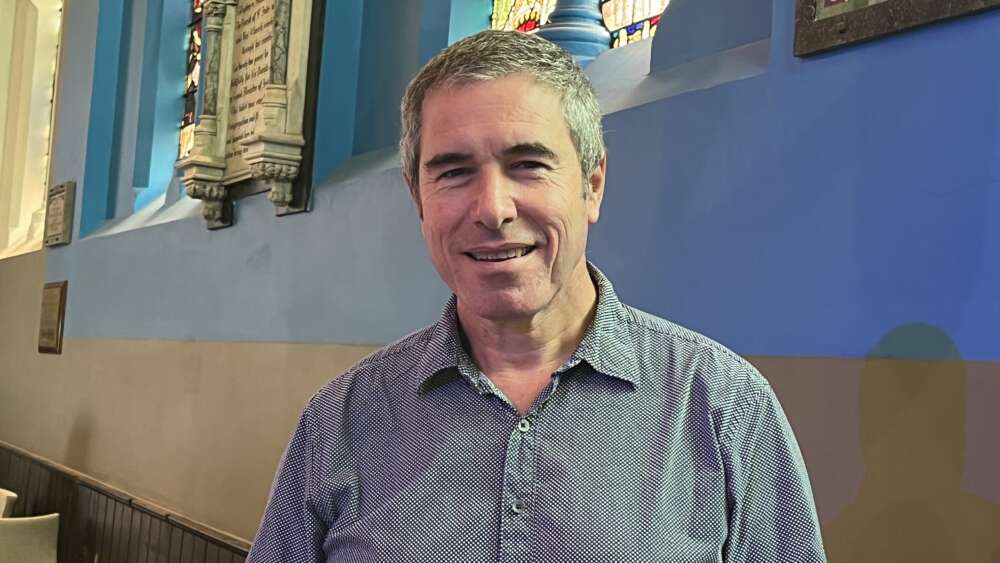Unity was the buzzword at the Building Momentum conference of clergy across the denominations and representatives from para-church agencies in Melbourne this week.
It was the inaugural get-together of City to City, the Australian offshoot of Tim Keller’s Redeemer City to City leadership development and church planting organisation.
The 110 participants, predominantly Anglo, represented the Anglican, Protestant and Pentecostal traditions across Australia.
City to City Australia CEO, Andrew Katay, gave a passionate address laying out his vision for a modern-day revival, with a focus not on cities but the 240 sub-cities where most Australians inhabit.
Big themes such as what is movement, how we collaborate, the use of catalysts, and the definition of unity, dominated conversations.
“Unity, natural unity in the gospel, comes out of deep confidence in who one is.” – Andrew Katay
“I think the easy thing is to talk enthusiastically about the idea of unity with collaboration. And I think we’ve done that. And that’s been a really good moment, but it is the easiest thing,” Katay said.
“Unity is not created by stopping being who you are – that’s uniformity and comes out of a lack of confidence. Unity, natural unity in the gospel, comes out of deep confidence in who one is and includes the distinctiveness and the things that are really important for me and yet at the same time, recognising that I don’t need to be threatened by others.
“And it’s that combination of confidence and humility. That means you can overcome those differences because the differences aren’t what define us. They’re just part of who I am. They’re not all of them. And I think everyone would agree in principle that who defines us as Jesus. We have Jesus in common.”
Simply put, Katay defined unity as “don’t stop being yourself and don’t ‘slag’ off at other people”.
Why was unity such a big topic at this event? Those gathered were hearing about pockets around Australia where churches in local government areas (LGAs) have come together to pray and fellowship together. Over time, sometimes many years, the group has united over their shared faith and put aside denominational differences to hold key events, to serve their communities in love as one body in Christ.
“The obstacle to unity is lack of humility. We need each other!” – Ian Shelton
Could there be a movement of God’s spirit in Australia? Katay would say not. The days of Billy Graham crusades are over, he told the conference. Australia is now segmented by cultures and subcultures, socioeconomic divides, ethnicities, “tribes” – and to generate movement is by one “sub-city” at a time.
City to City has adopted Tim Keller’s definition of movement, “an organised organism”, and Katay said the goal of movement was gospel saturation.
Other speakers included Alan Hirsch, a leading voice in missional leadership, who recently returned from several years living in the US. Hirsch said that God intends Christians to be a movement.
Ian Shelton, the elder of the gathering, spoke with warmth and generosity about the impact that united Christians had on his hometown of Toowoomba in Queensland. He reminded the gathering that God called people not just to pastor a church but to pastor a city.
“The obstacle to unity,” Shelton said, “is lack of humility. We need each other!”
Julie-Anne Laird, the project manager of the event, facilitated the two days and Beck Miller from Merri Creek Anglican Church helped the gathering with deep reflective prayer times. Karina Kreminski (author of Urban Spirituality) presented reflective, poetic devotions at the beginning of each day. She challenged each of us to consider “in what parts of my life is Jesus’ story not being told”.
What’s next for this group? Participants have been asked to consider joining a National Movement Working Group.
In a follow-up email, the initial agenda of the working group was laid out. Key items would include the model and structure of movement raised at the conference; building on the beginnings of state-based initiatives that were discussed; mapping of sub-cities and particularly, where catalysts are already in place gathering Christian leaders in their area in mission; as well as where there are gaps.”
For those who are interested in knowing more, you are invited to register on the City to City Facebook group.
Email This Story
Why not send this to a friend?



